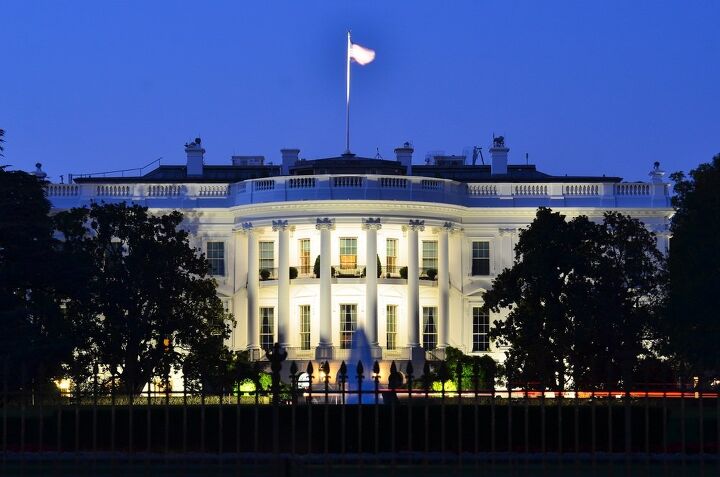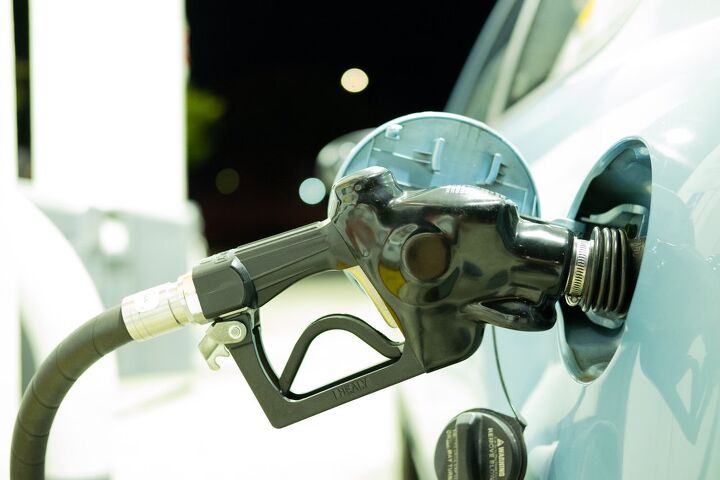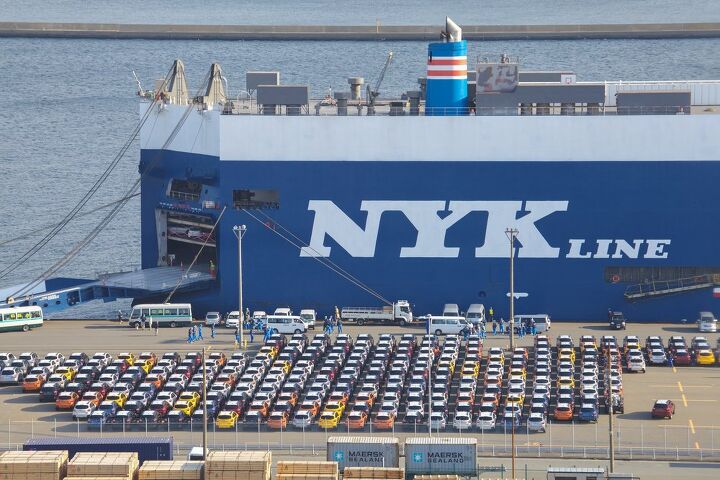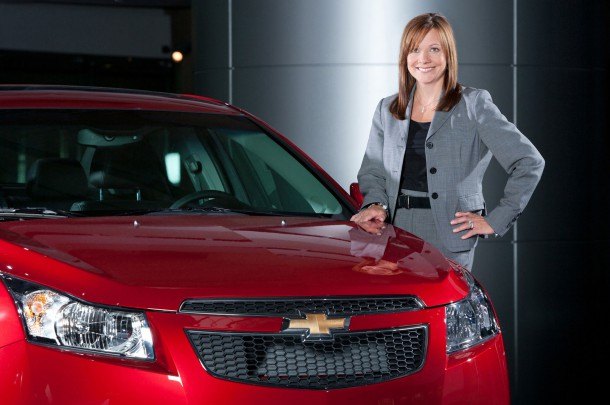#DonaldTrump
Report: Trump Administration Seeks to Soften Fuel Economy Rollback
One of the issues underpinning the gas war has been an inability for either side to compromise. Initially, it was the current administration complaining about California wanting special treatment. But the coastal state was quick to return fire, claiming that the White House never offered a valid compromise.
Eventually California extended an olive branch by suggesting it would postpone existing fuel economy mandates by one year, while attempting to lock automakers in via written commitments. But federal regulators said a singular national standard was needed, suggesting California had overstepped its authority by trying to rope in manufacturers.
However, EPA Administrator Andrew Wheeler came back this fall with claims of a revised plan that could actually be more stringent than originally presumed. While still a rollback, the new draft was said to close several loopholes the industry could use to continue their polluting ways. “In some of the out years, we’re actually more restrictive on CO2 emissions than the Obama proposal was,” Wheeler said.
New reports now suggest the EPA’s words are more than just noise.
Trade War Watch: Report Claims White House Wants to Dictate Where Cars Are Manufactured
The Trump administration has reportedly expressed an interest in deciding where and how automotive manufacturers do their business if they want to secure duty-free deals under the United States–Mexico–Canada Agreement (USMCA) that’s positioned to replace NAFTA. According to Bloomberg, there’s currently a discussion taking place between administration officials, congressional staff, and domestic and foreign automakers regarding the context of the legislation that lawmakers will ultimately have to vote on. The White House is said to want highly specific language that would allow it to select production rules unilaterally.
Considering how messy things have gotten with China, it could be useful to have extremely clear trade language and some direct oversight of businesses with global interests. But critics are worried the strategy could bring U.S. trade policy closer to the rigid policies already in place in the People’s Republic — a country America has attempted to distance itself from due to its ludicrous levels of government intervention.
The real fear is that the government could use this to give one manufacturer better treatment than another — cutting it a sweet deal for building in a politically advantageous area, for example. While plausible, we can’t confirm something that’s largely speculative.
No New Auto Tariffs For Japan, Probably
The United States and Japan have signed a limited trade deal that’s been simmering for some months now. President Donald Trump has been eager to secure a place where American farmers can send their goods now that the trade war with China has diminished American dealings with that market. In return, Japan wanted assurances from the U.S. that it will not impose any new automotive tariffs, as cars remain one of its chief exports.
While the island nation didn’t get the guarantee in writing, Prime Minister Shinzo Abe claims he received a verbal promise. This is to be the first part of a broader trade deal between the two countries.
Gas War: More Backup Arrives for California
California has gained additional support from two Democratic governors in the gas war. On Tuesday, New Mexico Governor Michelle Lujan Grisham announced her state would adopt new tailpipe greenhouse gas and zero-emission vehicle requirements starting in the 2022 model year. The following day, Minnesota Governor Tim Walz directed his state to do the same.
Both of the plans embrace Californian standards already adopted by 13 other states hoping to aggressively curb vehicle emissions and promote the sale of electric cars. It also expresses support for the state after the Trump administration announced it would take for steps to eliminate California’s ability to self-regulate fleetwide greenhouse gas emissions.
“It’s pretty obvious today amongst all chaos in the national news that we can’t count on Washington to lead, so Minnesota needs to,” said Walz.
Gas War: EPA Says California Has Worst Air Quality in the U.S., Threatens to Cut Highway Funding
With California gearing up for a legal battle against federal regulators eager to revoke its fuel waiver, we knew it wouldn’t be long before another salvo was launched in the gas war. However, the latest skirmish is a bit personal. According to Automotive News, Environmental Protection Agency Administrator Andrew Wheeler issued a letter to to California Air Resource Board chief Mary Nichols on Tuesday that framed the Golden State as unfit to dictate U.S. environmental policy.
The letter claims California has “the worst air quality in the United States” and a backlog of implementation plans to address ambient pollution standards surpassing every other state in the union.
California is scheduled to receive over $4 billion in annual federal highway funding this October. Now, the EPA is claiming the state failed to enforce the U.S. Clean Air Act. As a result, the Trump administration is threatening to withdraw those funds if the region doesn’t take immediately action on 130 different state implementation plans.
Gas War: California Sues Over State-based Emission Standards
On Friday, California and 23 other states filed a lawsuit against the Trump Administration over efforts to reverse state-driven emissions standards. Earlier this week, the president confirmed speculation that the federal government would be taking steps to revoke California’s fuel waiver — making the suit about as predictable as the setting sun.
We’ve told the story countless times. The Golden State wants to maintain stringent emission laws for automobiles, the Trump administration wants a fuel rollback, and automakers want a universal national standard. After months of nonproductive talks and all sides attempting to make their case to the public, it looks at though the Supreme Court will have the final say.
Trade War: Europe Readying Retaliatory Duties for Prospective Auto Tariffs
The European Union is keeping the possibility of retaliatory tariffs against the U.S. on the table should President Donald Trump follow through on threats to impose new duties on automotive goods.
European Trade Commissioner Cecilia Malmstrom criticized Trump’s suggestion from May that EU cars and auto parts shipped into the American market posed a national security risk. The administration has issued a mid-November deadline to decide whether to not it’s worth trying to mitigate vehicle-related imports.
Why is this coming back up? November is fast approaching and, with the U.S. winning right to slap the EU with billions of euros in punitive fees thanks to the Airbus dispute, Europe is getting worried it’s heading for tariff town. Washington has already strongly hinted that it would follow through with tariffs if it won its case with the World Trade Organization and has prepared a broad list of EU products, including those stemming form the automotive industry.
Gas War: Trump Confirms U.S. Will Revoke California Fuel Waiver
While a considerable portion of Donald Trump’s Twitter announcements aren’t worth paying much attention to, he does occasionally slip some actual information in there. This week, the nugget was the confirmation that his administration intends to revoke California’s federal waiver on emissions — stripping the state of its ability to self-regulate and readying America for the gas war’s main event.
The Environmental Protection Agency was already known to be making preparations to do exactly this, but the president’s Wednesday posting made things crystal clear. “The Trump Administration is revoking California’s Federal Waiver on emissions in order to produce far less expensive cars for the consumer, while at the same time making the cars substantially SAFER,” he wrote.
United States Won't Raise Tariffs on Japanese Vehicles, Report Suggests
With Japan and the United States spending the better part of the summer discussing trade relations, there were minor fears that the island nation would become subject to new tariffs. Fortunately, most of the reporting on the matter showed negotiations to be productive, with President Donald Trump and Prime Minister Shinzo Abe perpetually optimistic about the two countries’ relationship.
Last month at a Group of Seven Summit, the pair even claimed to be on the verge of signing a new agreement. According to Reuters, that will come without new fees on Japanese-made automobiles.
Gas War: White House Preparing to Strip California of Regulatory Privileges, Report Claims
It’s not as if we anticipated any other outcome, but the White House is moving forward with a plan to revoke California’s authority to set its own vehicle emission standards. According to Reuters, President Donald Trump met with senior officials in Washington on Thursday to discuss the administration’s proposal to roll back Obama-era standards through 2025 and potentially revoke California’s waiver under the Clean Air Act to set state requirements for vehicles.
Anonymous sources claimed Environmental Protection Agency Administrator Andrew Wheeler, Transportation Secretary Elaine Chao, National Economic Council director Larry Kudlow, Deputy Attorney General Jeffrey Rosen and acting Office and Management and Budget director Russell Vought were in attendance.
Gas War: EPA Head Suggests Fuel Rollback May Have Some Wiggle Room
Environmental Protection Agency Administrator Andrew Wheeler weighed in on the gas war this week, issuing some firm language on the matter during a visit to Chattanooga, Tennessee. His words were softer upon returning to Washington, where he reminded everyone that the EPA has made no formal decisions on the matter and suggested there could still be room for compromise.
Unfortunately, locating that happy middle ground has been a bit of a problem. Despite the fuel economy rollback’s status as a proposal, hard lines have been drawn in the sand between the Trump administration and California’s regulatory bodies. The Golden State’s compromise was to delay the Obama-era targets by one year. California also recruited municipalities, U.S. states, and automotive manufacturers to pledge their support of the plan, resulting in a handful of carmakers finding themselves on the business end of an antitrust probe.
Meanwhile, the Trump administration’s compromise has been nonexistent. Wheeler’s words suggest that might be because everyone is still making up their minds… but not before he gently razzed the West Coast for being shortsighted an singleminded.
Car Talk: GM's Barra to Sit Down With Trump Thursday
General Motors CEO will meet with U.S. President Donald Trump and White House officials on Thursday to discuss the state of the automotive industry, trade issues, and the fuel economy rollback. We imagine it’ll go much differently than their first meeting in Washington.
Perpetually concerned with economic threats arising from China, Trump has come down hard on automakers in the past. These days, his favorite punching bag happens to be GM. The automaker’s strong presence in China has forced it to make commitments there. On this side of the Pacific, the automaker has shuttered production facilities in Michigan, Ohio, and Maryland while continuing to manufacture vehicles in Mexico — something the UAW has been exceptionally critical of going into contract negotiations.
Gas War Update, Choose a Side Edition
According to recent reports, there’s trouble with the White House’s fuel economy rollback. The Trump administration is said to have been meeting with automakers, asking them to stand behind its proposal to freeze economy standards at about 37 mpg until 2026. The New York Times indicates it was an act of desperation, spurred by claims that Mercedes-Benz was on the cusp of supporting the California compromise. Based on existing standards, which would raise the average fuel economy of new cars and trucks to 54.5 miles per gallon by 2025, the deal would delay its targets by one year.
Honda, Ford, Volkswagen, and BMW previously agreed to support California’s proposal in July. However, the deal is non-binding if the White House decides to push through a rollback, and most of the rhetoric being used by the industry seems more focused on a joint standard.
“A 50-state solution has always been our preferred path forward and we understand that any deal involves compromise,” read the automakers’ joint statement.”These terms will provide our companies much-needed regulatory certainty by allowing us to meet both federal and state requirements with a single national fleet, avoiding a patchwork of regulations while continuing to ensure meaningful greenhouse gas emissions reductions.”
Japan Eyeballs Minor Trade Deal With U.S. Slated for September
The United States and Japan are working on a trade deal revolving around agriculture and automobiles. As much as you’re probably dying to hear about the farming aspects, we’re going to focus a bit more on the latter. Boiled down, the arrangement is reported to deliver preferential treatment for U.S. farmers hoping to expand into the Japanese market while lessing duties on Japanese auto parts.
President Donald Trump has noted in the past that he’s displeased with any country holding a trade surplus over America’s head and Japan has one. Last year, it amounted to $67.6 billion in goods — most of it relating directly to automobiles. This initially encouraged the president to threaten tariffs on Japanese imports. However, Japan’s close ties to the United States bought it some time and any legitimate danger has been postponed to encourage trade discussions.
Mild Misinformation About the Gas War: Governors Unite, Automakers Compromise
On Tuesday, 23 governors signed a joint statement urging the Trump administration to reconsider the proposed rollback of Obama-era fueling regulations. Led, unsurprisingly, by California Governor Gavin Newsom, the letter suggests a “common-sense approach” to national requirements with an emphasis on rising standards.
A minor update in the gas war to be certain — and yet annoyingly framed by a large portion of the media as a victory for California when the realities are far more complicated. To be frank, we’re getting pretty tired of these lopsided takes. This whole thing is a regulatory and political quagmire… on all sides.



























Recent Comments